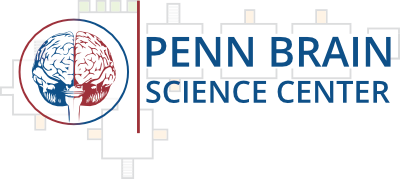
Branch Coslett, MD
Dr. Coslett is the William N. Kelley Professor of Neurology at the University of Pennsylvania and a Research Neurologist with the Moss Rehabilitation Hospital. He received his MD from the University of Pennsylvania School of Medicine in 1977, completed residency in Neurology at the University of Virginia in 1981, and a fellowship in Behavioral Neurology at the University of Florida in 1983. Dr. Coslett’s research interest is in the area of Behavioral/Cognitive Neurology, and more specifically in understanding the architecture and neural bases for human cognition through the study of human spatial cognition, reading, semantic memory, functional imaging and transcranial magnetic stimulation.
Jonh Detre- I am Professor of Neurology and Radiology at the University of Pennsylvania Perelman School of Medicine. I am founding Director of the Center for Functional Neuroimaging in the Department of Radiology, co-Director of the Center for Advanced Magnetic Resonance and Spectroscopy, and Vice Chair for Research in the Department of Neurology. I received my bachelors and medical degrees from Yale, completed fellowships in biophysics at both Carnegie Mellon University and the University of Pennsylvania, and completed neurology residency at Penn, where I’ve been on the faculty since 1993.
I have been continuously NIH-funded since 1993 and am author or co-author of over 300 original manuscripts. Much of my research concerns the development and validation of methods for noninvasively measuring regional cerebral blood flow, and the application of these methods in basic and clinical neuroscience. I am co-inventor of arterial spin labeled perfusion MRI, which has been translated to clinical use, but remains a powerful research tool for measuring regional brain function. I also carry out research using other MRI modalities, as well as with optical methods for bedside monitoring of brain function. My main current interests include cerebrovascular physiology and neurodegeneration, but I also work in stroke, epilepsy, traumatic brain injury, sleep, and affective disorders.
